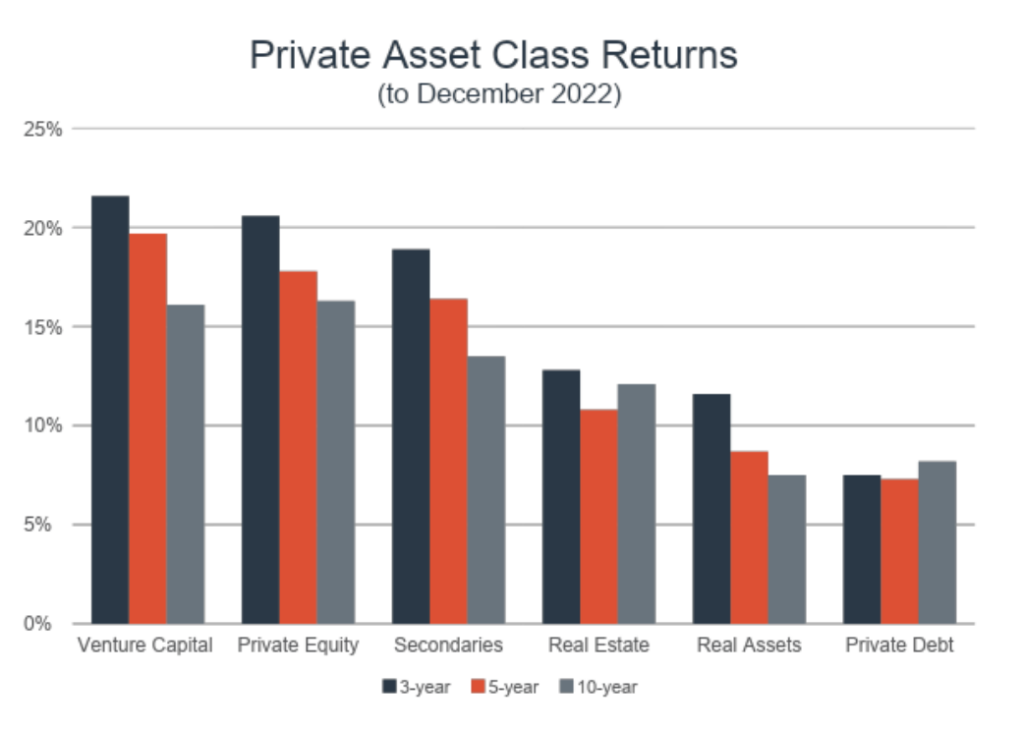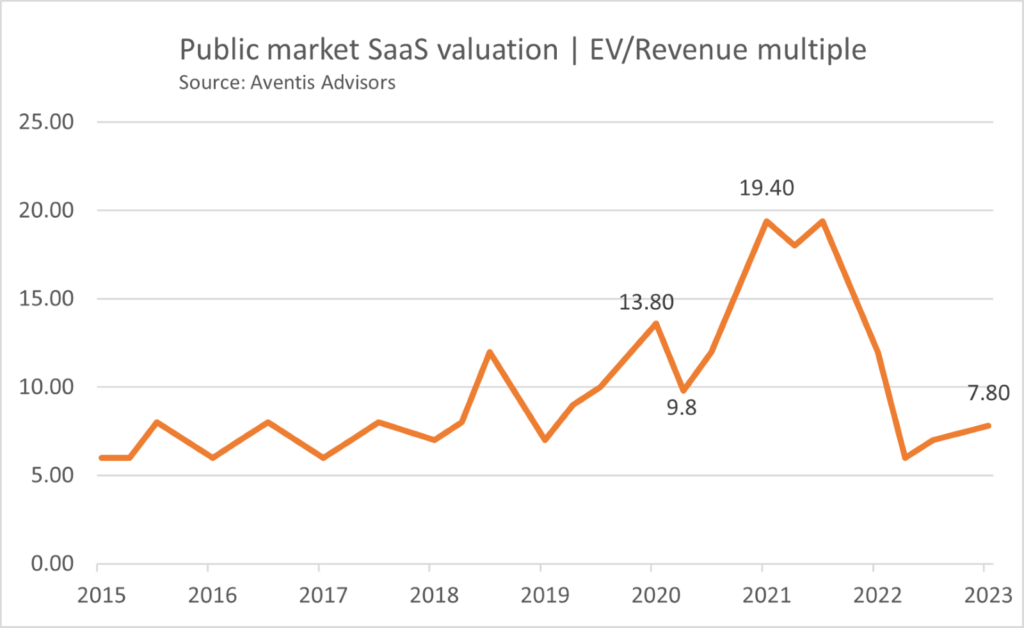Why Canadian Family Offices Should Invest in Canadian Venture Capital
Over the past few years, the Pender Ventures team has met with a number of Canadian family offices in the context of raising our second fund. A few that made their money in technology are committed to the sector, with 20% or more of their portfolio in venture capital and direct startup investing. Many, however, have little or no allocation to venture funds or startups. As deep believers in the venture asset class, we believe the future has never been brighter, and that now is an ideal time for all allocators to double down. In this post, we share some thoughts on how the holders of Canadian private wealth can think about the opportunity to invest in local venture capital firms.
Why Venture?
Returns
The case for investing in venture capital starts with the question of returns. The last 10 years provide an important data set. Over that period, venture has topped the global charts for private investment strategies for three- and five-year returns, and ranked second for ten-year returns, as seen in the chart below.

Source: Pitchbook, Global Fund Performance Report 2022
Venture returns come with higher variance on a fund-by-fund basis, as well as long lockup periods, but for long-term investors with appropriate risk tolerance, the potential for outsized returns is very real.
Non-Correlation
Another key selling point for venture capital is the uncorrelated nature of the returns. Venture portfolios consist of unique, often idiosyncratic companies whose trajectory can run counter to macroeconomic trends. Many portfolios are highly concentrated, leading to even more distinct outcomes. The result is an asset class with low correlation to other public and private strategies, as shown in the chart below:

Source: Pitchbook, Private Capital Indexes Q4 2022
Why Canada?
Competitive Performance
The question of returns comes first when considering geographic allocation as well. While the United States is still the benchmark, decades of Canadian governmental stimulus and societal shifts toward entrepreneurship have delivered a positive trend line, as seen in the chart below:

We believe the coming decade will see further convergence, as new funds invest into a globally competitive technology sector that continues to benefit from significant governmental stimulus at all levels.
Strong Fundamentals
The improved returns for Canadian venture capital are driven by strong economic and cultural fundamentals. Canada’s innovation ecosystem is built on top of its world class universities, which provide a steady source of intellectual property and well-trained employees to fuel company creation. Canada’s progressive immigration policies also contribute to the country’s rich talent base. On the financing side, venture capital access has skyrocketed, with Canada now ranked in the top tier of OECD countries for VC investment. As they scale, anchor companies like Shopify provide a training ground for talent, while increasing the number of angel investors. It’s thanks to all these forces that three Canadian cities are ranked in the top 40 of global startup ecosystems.
Local Partners
Investing in Canadian venture managers offers a chance for Canadian family offices to build strong local partnerships. During the selection process, Canadian GPs are much easier to meet and diligence. Once an investment is made, family offices can stay much closer to local firms, a key factor in building long-term relationships. Local GPs with local portfolios can also provide better local insights on the market forces that matter to Canadian family offices, who are typically remain heavily invested in the local economy, via the original family business and/or diversified holdings.
Local Impact
Investing in Canadian venture firms is also an investment in local economic development. Canadian cities have performed impressively in the creation of high value technology jobs, even outpacing US rivals in recent years. By investing in local venture funds, family offices can help leave a legacy of job growth and economic progress for future generations, while also contributing to the development of globally transformative technologies such as artificial intelligence and climate tech.
Why Now?
Attractive Valuations
Vintages matter in venture, so the question of timing is an important one to close on. At Pender, we believe there is a strong case that this is an ideal time to invest. During COVID, the combination of expansive monetary policy and tech-friendly social disruption led to an asset price bubble in technology companies, with the average revenue multiple hitting nearly 20x, far above historical averages. After the recent correction, multiples are far more attractive and in line with or below historical norms, as seen in the chart below:

Source: https://aventis-advisors.com/saas-valuation-multiples/
Counter Cyclical Investing
Taking a more historical perspective, investing in venture capital in the years after an economic downturn, when valuations are near or below average, has long been a fruitful strategy. Venture returns from the years following the great recession have been stellar, with the list of big winners from that period including Square, Stripe, Uber, Airbnb, WhatsApp and Instagram. Looking further back, we see a similar pattern in the post dot-com boom, which saw the birth of current stalwarts such as Google, Salesforce, and PayPal.
Driving Toward 6%
The average North American family office allocates 6% of its portfolio to venture. While equivalent numbers for Canada are not readily available, based on our own informal analysis, we believe the number is far below this mark. As we continue to engage with the family office community, we look forward to generating awareness, engagement and ultimately action that helps drive increased support for this high-potential asset class.
For more information, please visit www.penderventures.com. Please read important disclosures at www.penderventures.com/disclaimer.
Back to top ↖


